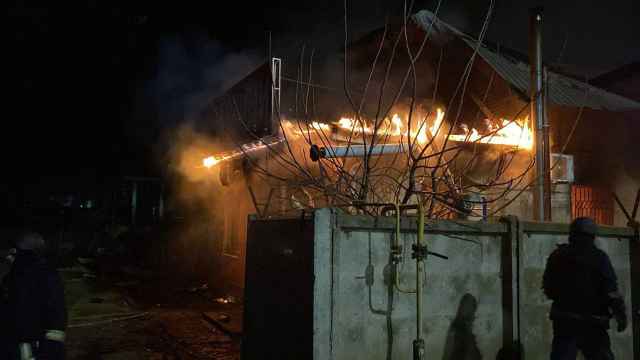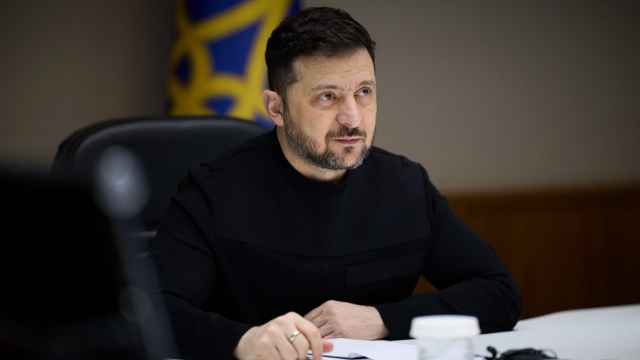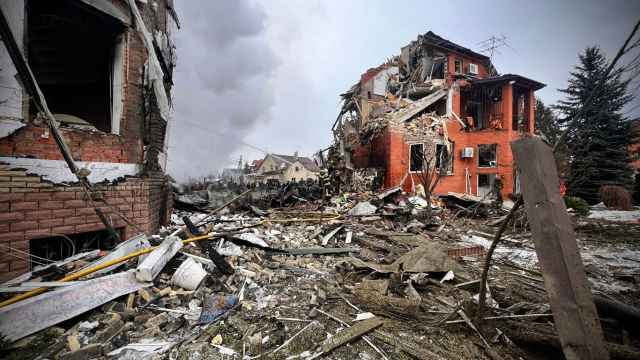Even as President Vladimir Putin unveiled a new Cabinet on Monday, my hopes had already been all but shattered that we would see a slightly more liberal Putin during what is effectively his fourth consecutive term in power.
Just as he did in 2000, Putin signed a number of decrees immediately after his inauguration. Twelve years ago, those orders laid the foundation for his vertical power structure. This time around, they were dominated by a series of populist promises to spend billions of rubles on the defense industry, pensioners and on the millions of others who depend on government financing.
Several elements of Putin's populism are reminiscent of the utopian Communist Party program under Nikita Khrushchev in 1961, when he promised that the final stage of communism would be reached in 20 years. For example, in the sphere of demographics, Putin signed a presidential decree to increase average life expectancy to 74 by 2018. As for economic policy, Putin promised that in the World Bank's Ease of Doing Business ranking Russia would jump from 120th place in 2011 to 50th place by 2015, and then to 20th place by 2018.
Meanwhile, although the new law concerning the direct election of governors has been signed, the Kremlin has been feverishly appointing new governors to avoid any unpleasant surprises at the ballot box. As a result, of the 11 gubernatorial elections originally slated for this year, only four will actually be held — in the Amur, Belgorod, Novgorod and Bryansk regions. These are all small regions where the Kremlin is confident that it has the situation under control.
Almost 20 governors — about one out of every four — have been replaced since the beginning of the year. There were two motivations behind the changes. First, there was a desire to replace weak, ineffective governors who were unable to secure the desired results for United Russia in the State Duma elections in December and for Putin in the presidential election in March. Second, the Kremlin wanted to install new governors in large, important regions like Samara, Sverdlovsk and Perm where it would prefer to have loyal governors — and no elections — in place for the next five years.
For the first time, governors were appointed from among the local political elites, giving a clear nod to the region's dominant business and political clans Moreover, the Kremlin has continued the practice of transferring governors, whose main achievement was to secure good results for United Russia in their respective regions, to new regions. Earlier, former Astrakhan Governor Sergei Bozhenov was transferred to Volgograd, and now former Mordovia leader Nikolai Merkushkin has been reassigned to Samara.
The "new" Putin made his priorities very clear through the harsh police measures against demonstrators and his order to have the Moscow city streets swept clean of people and cars for his motorcade during the inauguration. In addition, Putin made his first presidential visit to Nizhny Tagil and the country's largest tank factory, where he bestowed favors to workers whose loyalty he had secured with generous government contracts.
Nonetheless, I am optimistic about the future. It seems inevitable that the political system will undergo some changes this year, perhaps even serious ones — not because Putin wants them, but because elements of Putin's inner circle are convinced that the government must take some of the protesters' demands seriously. They understand that some political changes to Putin's system are necessary — if for no other reason than to keep the status quo intact.
Nikolai Petrov is a scholar in residence at the Carnegie Moscow Center.
A Message from The Moscow Times:
Dear readers,
We are facing unprecedented challenges. Russia's Prosecutor General's Office has designated The Moscow Times as an "undesirable" organization, criminalizing our work and putting our staff at risk of prosecution. This follows our earlier unjust labeling as a "foreign agent."
These actions are direct attempts to silence independent journalism in Russia. The authorities claim our work "discredits the decisions of the Russian leadership." We see things differently: we strive to provide accurate, unbiased reporting on Russia.
We, the journalists of The Moscow Times, refuse to be silenced. But to continue our work, we need your help.
Your support, no matter how small, makes a world of difference. If you can, please support us monthly starting from just $2. It's quick to set up, and every contribution makes a significant impact.
By supporting The Moscow Times, you're defending open, independent journalism in the face of repression. Thank you for standing with us.
Remind me later.






